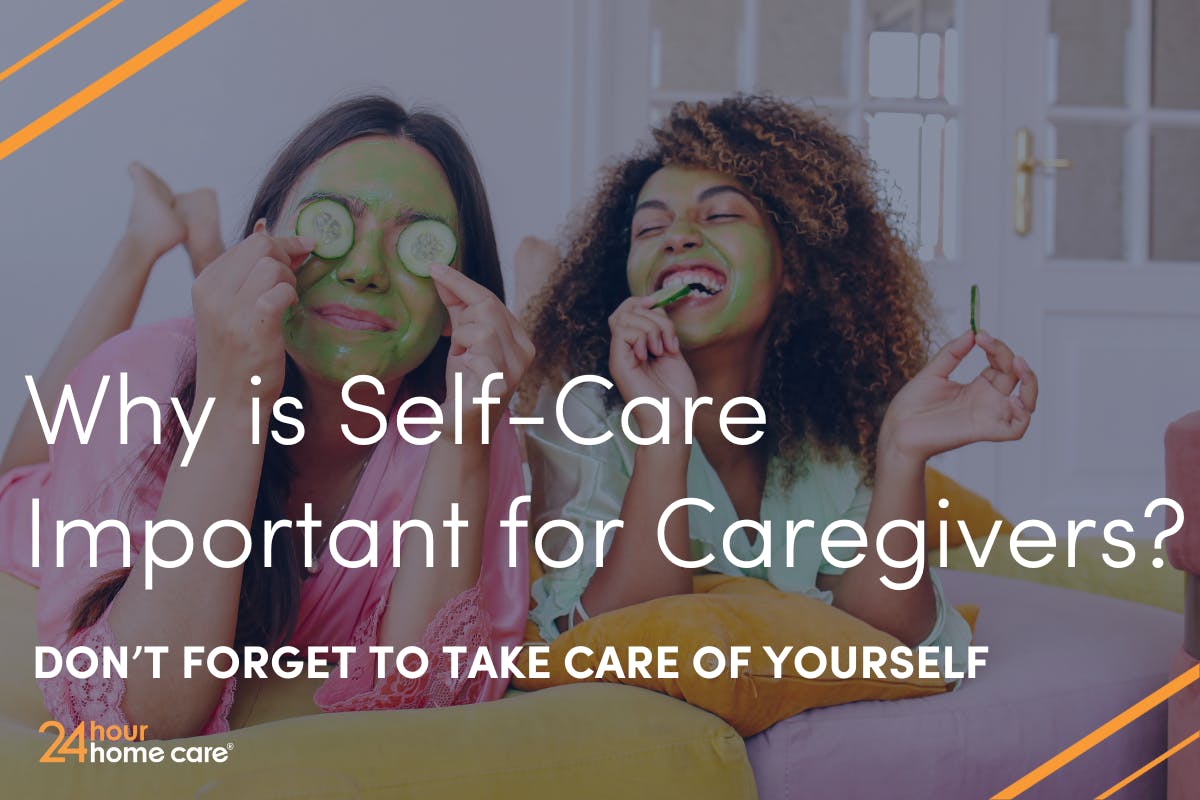Self-Care is Important for Caregivers to Prevent Burnout

Self-care is such an important aspect of life that far too often gets overlooked. For people who work in demanding fields, such as caregiving, self-care helps reduce anxiety, improve overall mood, and encourages people to take care of themselves spiritually, emotionally, mentally, and physically.
For most, self-care is the act of doing something that brings peace and balance to the soul and mind. It’s crucial for caregivers to practice self-care because it’s easy to put yourself aside when caring for another person who is sick or disabled. Caregivers are hardworking, kind, and genuine people who put all their time and energy into caring for others, they all deserve some self-care.
Caregiving is not an easy job. Because of this, caregivers are more prone to increased anxiety and depression, as their job may require them to give their patients all their physical, mental and emotional energy.
At the end of the day, caregivers likely feel exhausted, and they may start to experience the feeling of caregiver burnout and fatigue. This may be due to long hours on the job, the passing of a client, increased anxiety when away from their client that they are invested in or simply because they are fatigued.
Self-care comes in many different forms. Self-care will look different to different people, every person is unique, and their method of practicing self-care will also be unique.
While self-care can look different from person to person, there are several core actions a caregiver can take in order to have a happy mind, body and soul.
Some activities include:
- Taking time to pick out and prepare a healthy and tasty meal. What you eat has a direct impact on your overall health and wellness. Eating a balanced diet will help anyone feel their best. Most healthy diets include fruits, vegetables, whole grains, lean proteins, and healthy fats.
- Treating yourself to a massage has several benefits. It’s even been proven that professional massages can help reduce anxiety and stress. Taking time to unwind will help caregivers de-stress and re-align their bodies. Caregiving can be hard on a body. Our caregivers are standing, kneeling, lifting, and staying active for most of their shifts. Taking care of their bodies can have great benefits for caregivers.
- Meditation has also proven to be very beneficial. Taking a moment to clear their head and find a place of grounding can give the caregiver some much needed time to reconnect their breath to their body, and relax their mind and soul. Meditation takes time and practice and may not be a caregiver's first choice of self-care, but when done correctly, meditation can improve cognitive functions and relieve stress for caregivers.
- Mindful movement can be one of the most important things a caregiver can do for themselves. Exercise helps the body and the mind. In addition to keeping a caregiver moving, exercise can also boost endorphins.
- Going outside is a great way to practice self-care. Fresh air can have amazing benefits for the body and the mind. Being outdoors can reduce depression and feelings of burnout.
- Self-care can also involve doing nice things for yourself. We mentioned getting a massage earlier in the list, but self-care can also look like taking a bath or treating yourself to a manicure and pedicure.
- Another aspect of self-care is the mind. Yoga is a great exercise that can incorporate meditation practices. To feed the mind, caregivers can care for themselves by reading a book, writing in a journal, reconnecting with friends and family, and playing with pets.
Whether it is through connecting with loved ones, practicing yoga or tai chi or simply reading a book, self-care is so important for caregivers to unwind and relax at the end of their days.
Being a caregiver is difficult and often chaotic work, leaving caregivers susceptible to feeling empty, anxious, depressed or stressed at the end of the day. Self-care is one of the best ways to ensure that caregivers are healthy and will continue to flourish in their day-to-day routine.
We encourage caregivers to actively seek out opportunities for self-care: don’t be afraid to take care of the most important person in your life – you!
